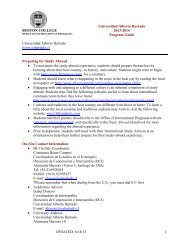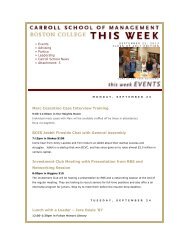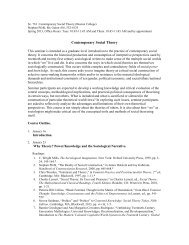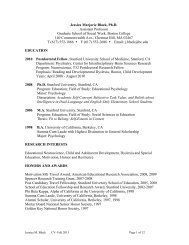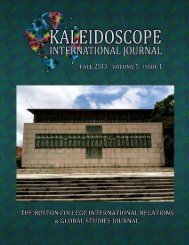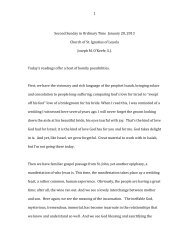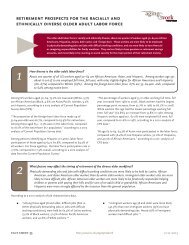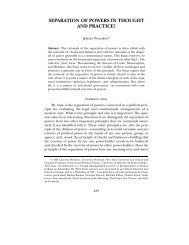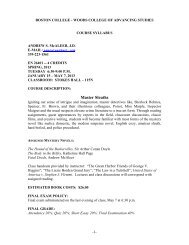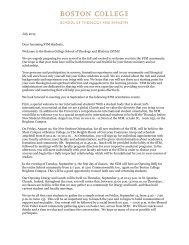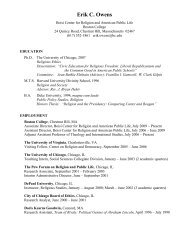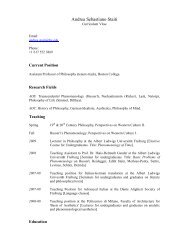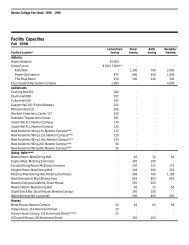Create successful ePaper yourself
Turn your PDF publications into a flip-book with our unique Google optimized e-Paper software.
5 th Sunday of Lent<br />
March 17, 2013<br />
5:30 PM Liturgy<br />
J.A. Loftus, S.J.<br />
Our old friend Mark Twain can always be counted on to provide a<br />
pithy comment or two about religion. One of my favorites is this: “It ain’t<br />
the parts of the bible that I can’t understand that bothers me, it’s the parts<br />
that I do understand.”<br />
Twain grasps here that it’s not so much new insights or new teachings<br />
that I learn that causes the problem understanding things in the bible. It’s<br />
just much more difficult to unlearn than to learn. Think about it. In<br />
whatever field of exploration you can think of (industry, physics, biology,<br />
economics, philosophy, and even theology), it’s the unlearning of past<br />
treasured notions that upsets the apple-cart. Whenever something new<br />
surprises us, we first have to figure out what to do with the “old.”<br />
This holds true in religion and theology too. And so how seriously can<br />
we take Isaiah’s prophesy today? Can we really hear him? “Remember not<br />
the events of the past, the things of long ago consider not; see I am doing<br />
something new.” And Isaiah is referring not to any old “something new.”<br />
It is something so radially different, so completely unexpected, so<br />
mind-bending, that everything we thought we knew is turned completely
up-side-down. Everything: our sense of God, of sin, of love, and of life itself.<br />
It all becomes “inverted.”<br />
Sounds like lots of “unlearning” to do, friends. But Jesus’ own life<br />
demands much the same response. Jesus was at such pains to show his<br />
contemporaries that their notions of who God was, of how God judges people,<br />
of what life here is really about, were misguided. Jesus’ life and teaching<br />
offered nothing really radically new in terms of doctrine, or a comprehensive<br />
ethic. He built no new church, created no new religion. He just begged<br />
people to unlearn what they had been taught about God and God’s ways.<br />
Last week most liturgies heard the well-known gospel that we call the<br />
parable of the “Prodigal Son.” (I realize that if you were at this liturgy last<br />
week you heard a different gospel about the man born blind from John’s<br />
gospel. No matter: you all know the Prodigal Son parable by heart!) It’s<br />
really the story of two lost sons. An elder son who has kept every law in the<br />
book for his entire lifetime, a son who built his relationship with his father<br />
and with God so carefully, that he cannot and will not accept a graciousness<br />
and love beyond reason. He leaves himself permanently alienated by all he<br />
has known and treasured. He cannot unlearn his god.<br />
And then there is a second son, the one who chooses the path of<br />
2
self-discovery and self-exploration. And he too is lost. And then there is a<br />
father who is unreasonably loving to both sons. He appeals again and again:<br />
let’s just enjoy the banquet. No groveling needed, no prior repentance<br />
required, no sack cloth and ashes for him. The father is the one who is being<br />
unreasonable and profligate here.<br />
Jesus aims this parable directly at the religious authorities peeking in<br />
from outside the dinner party. And they must now be furious. They could<br />
certainly see themselves in the elder son. And this Jesus must go! He is<br />
turning everything up-side-down.<br />
And now to today’s story. The religious authorities are back, of<br />
course. They really seem to delight in freezing people with their stares.<br />
And now they’ve caught a young woman in the very act of adultery. (I’ve<br />
always wondered how they did that without peering into people’s bedrooms.<br />
But that’s another story.) They plan on getting two birds with one stone<br />
today: the woman and this “goody-two-shoes” who keeps telling people God<br />
actually forgives them. And they set their trap for Jesus.<br />
But Jesus will not be trapped. But watch, here comes another<br />
up-side-down cake, a complete inversion of the Law. Jesus reaches down<br />
with his finger and taps or writes in the sand. Remember this is John’s<br />
3
gospel. John is a very careful and crafty author. Nothing is ever simply<br />
accidental with John.<br />
Jesus is bending over from the seat of Moses to write. Remember it is<br />
the finger of God that writes the tablets of the commandments for Moses.<br />
And God has to write for Moses twice just as Jesus does in this scene. Think<br />
of the finger of God that writes on the wall in the book of Daniel. Remember<br />
the finger of God at creation. Look at the magnificent ceiling of the Sistine<br />
chapel in the Vatican and see the finger of God stretch out to Adam. The<br />
finger of God writes all human history.<br />
And the finger of God doodles before the self-righteous of this<br />
world–whether they be in the temples and synagogues of first century<br />
Palestine or scattered throughout the pews of churches in our own 21 st<br />
century. God, Jesus says, is not what we make God out to be! There is no<br />
need to buy righteousness. There is no need to repent first. God forgives.<br />
Period! This too is an up-side-down God Jesus preaches.<br />
There is a beautiful Rembrandt painting of this scene. Jesus is turning<br />
toward the elders pointing a finger at them (the same finger of God by the<br />
way). But at the bottom of the frame, barely noticeable, the young woman<br />
has quietly entwined her fingers around Jesus’ other hand. And he holds her<br />
4
hand tenderly as he asks: “Has no one condemned you?” “The neither do I.”<br />
This is who God is! There is no stare, no penalty, no restitution. Just:<br />
“go now and don’t do it again.”<br />
“It ain’t the parts of the bible I can’t understand that bothers me, it’s<br />
the parts I do.”<br />
Lent is a time of unlearning as much as anything. God will<br />
never be as predictable as we expect. Peace!<br />
5



